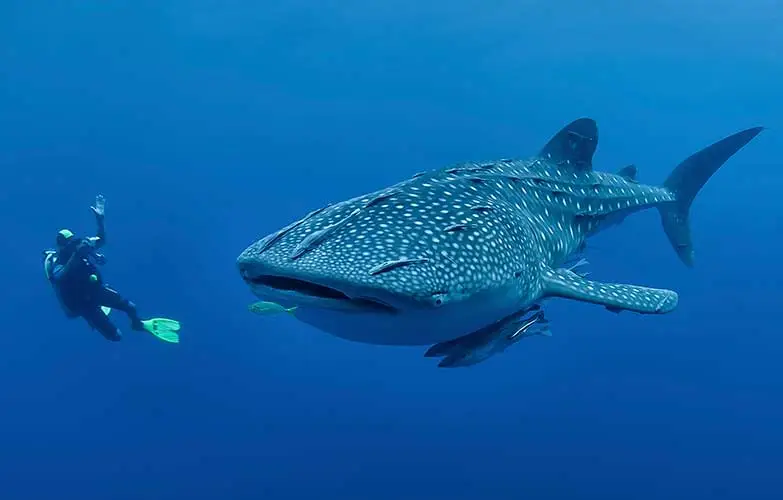Philippines as a Whale Shark Haven
The Philippines is blessed with rich marine biodiversity, captivating divers, and nature enthusiasts from around the world. Among the country’s many natural treasures, whale sharks stand out as magnificent marine marvels. Known as gentle giants of the ocean, these majestic creatures have made the Philippines their home, making it a renowned destination for unforgettable encounters. In this article, we will delve into the Philippines as a whale shark haven, highlighting the importance of conservation efforts and the opportunities for eco-tourism that arise from these incredible marine inhabitants.
The Gentle Giants:
Whale sharks, scientifically known as Rhincodon typus, are the largest fish species in the world. Despite their size, they are filter feeders that consume tiny plankton and small fish. These docile creatures possess unique patterns of white spots and stripes, adding to their charm and allure.
Donsol:
Located in Sorsogon, Donsol has earned the reputation of being the “Whale Shark Capital of the World.” From December to May, these gentle giants gather in the waters of Donsol Bay, creating an extraordinary spectacle. Snorkelers and divers have the privilege of swimming alongside these magnificent creatures, witnessing their graceful movements up close.
Oslob:
Situated in the province of Cebu, Oslob is another notable destination for whale shark encounters. Local fishermen have established a feeding program that attracts whale sharks to the area year-round. This allows visitors to observe and even snorkel beside these awe-inspiring creatures as they glide through the water, feeding on small shrimp.
Thriving Marine Biodiversity: The presence of whale sharks in the Philippines is a testament to the country’s remarkable marine biodiversity. The warm waters surrounding the archipelago provide an ideal habitat for these giants, attracting an abundance of plankton and other marine life that forms their diet. The Philippines’ diverse marine ecosystem creates an intricate web of life, supporting the presence of these gentle giants.
Conservation Efforts:
The Philippines recognizes the importance of preserving its natural treasures, including whale sharks. Conservation efforts have been implemented to protect these creatures and their habitats. Strict guidelines are in place to ensure responsible interactions, including maintaining a safe distance, prohibiting physical contact, and educating visitors about the importance of respecting their environment.
Eco-Tourism Opportunities:
Whale shark watching has opened doors to eco-tourism in the Philippines, offering a sustainable way to appreciate these majestic creatures while supporting local communities. Visitors can participate in guided tours that promote responsible whale shark encounters, fostering a deeper understanding of marine conservation and the significance of preserving these gentle giants for future generations.
Economic Impact:
The presence of whale sharks has brought economic benefits to local communities in the Philippines. Whale shark tourism has created employment opportunities and stimulated local economies, encouraging the protection of these marine habitats. The revenue generated from eco-tourism contributes to ongoing conservation efforts and raises awareness about the importance of preserving the country’s marine biodiversity.
Educational Experiences:
Whale shark encounters provide unique educational opportunities for visitors. By observing these gentle giants in their natural habitat, individuals can learn about their behavior, migration patterns, and role in the marine ecosystem. These experiences foster a sense of appreciation and inspire a commitment to marine conservation efforts.
Conclusion
The Philippines has rightfully earned its reputation as a whale shark haven, offering awe-inspiring encounters with these magnificent marine creatures. With destinations such as Donsol and Oslob, visitors can embark on unforgettable adventures, witnessing the grace and beauty of whale sharks up close. It is essential that these experiences are conducted responsibly, prioritizing the welfare of the whale sharks and their habitats. By embracing eco-tourism and supporting conservation efforts, we can ensure the long-term survival of these gentle giants while allowing future generations to continue to marvel at their presence in the Philippines’ bountiful seas.









